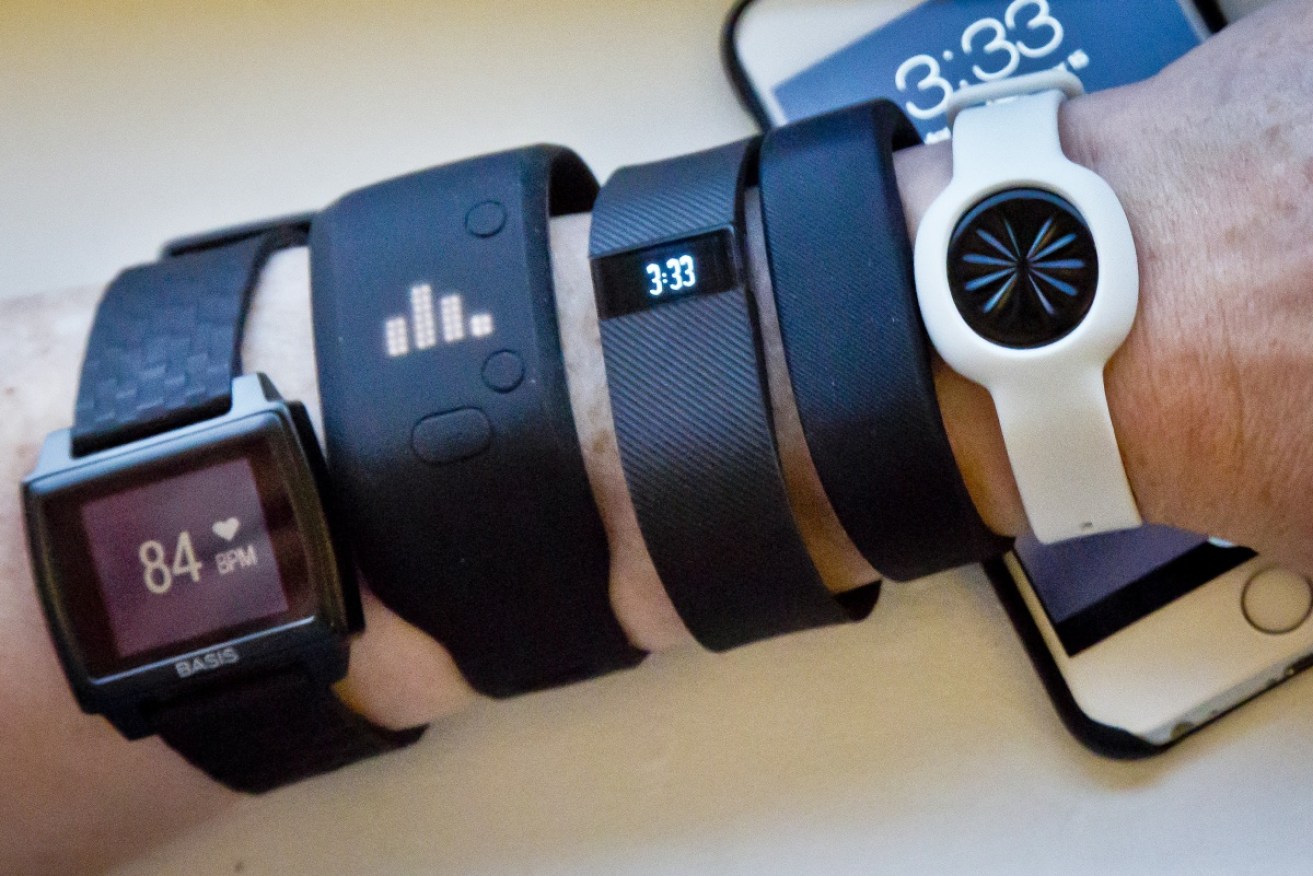Fitness trackers may not be as accurate as you think


A Queensland university is investigating whether we can trust Fitbit readings. Photo: AP
Last year Australians spent $130 million on fitness band trackers such as Fitbits and Garmins, but there are fears the popular accessories are not as accurate as once believed.
A study released this week by UK consumer group Which found that some fitness tracking devices such as Garmins recorded inconsistencies, cutting travel distances short by up to 32 per cent.
Queensland University of Technology is recruiting child participants to help researchers determine whether the data collected by Fitbits is in fact a reliable tool or just an expensive pedometer.
The study will involve a comparison between measurements recorded by fitness trackers worn by children aged three to five, and that recorded by sensors strapped to their bodies.
About 80,000 fitness band trackers were sold in Australia in 2017.
Electronic engineering lecturer Suneel Jethani of the University of Melbourne said many customers are questioning the accuracy of these devices on online forums.
He said not much is known about the algorithms used to collect the fitness-related data and the new research was “much-needed, important agenda-setting work”.
“Consumers and third parties dealing with the data need to be more informed about the accuracy and validity of the devices,” he told The New Daily.
“What’s dangerous is when decisions about people get made on the basis of the data, which is only ever an estimation of someone’s health, location and behaviour.

Fitbits are one of the popular fitness trackers to be investigated as part of the Australian study. Photo: Getty
“In the future as the applications of the technology becomes more sophisticated, and the stakes for individual wearers of these devices get higher, it will be important for device manufacturers to be able to show how calculations are made.”
Inaccurate data from fitness wearables could result in incorrect calculations of insurance premiums and false evidence in court, Mr Jethani said.
The devices may even discourage exercise. The competitive element of comparing fitness goals led to some teenagers in the UK doing less exercise overall, presumably because of feelings of guilt and incompetence, one study found last year.
Dr Bernd Ploderer, a QUT lecturer in computer-human interaction, said the fact that most devices only measure arm movements is a limitation.
“Obviously that method works fine when you are walking or running, but it is limited when you engage in sports where you use the arm to swing a racket, or where the arm is stationary as when riding a bicycle,” he told The New Daily.
CQUniversity’s Corneel Vandelanotte said FitBits, Garmins and other “advanced” wearables were “considered to be reliable and valid” for tracking adult activity, but were probably less accurate at measuring energy expenditure, calorie counts and sleep – and not accurate for children.
“I don’t think the devices will be very good for children aged three to five,” he told The New Daily.
“The vast majority of activity trackers on the market are for adults and most stipulate they are not to be used for kids under the age of 13.”








